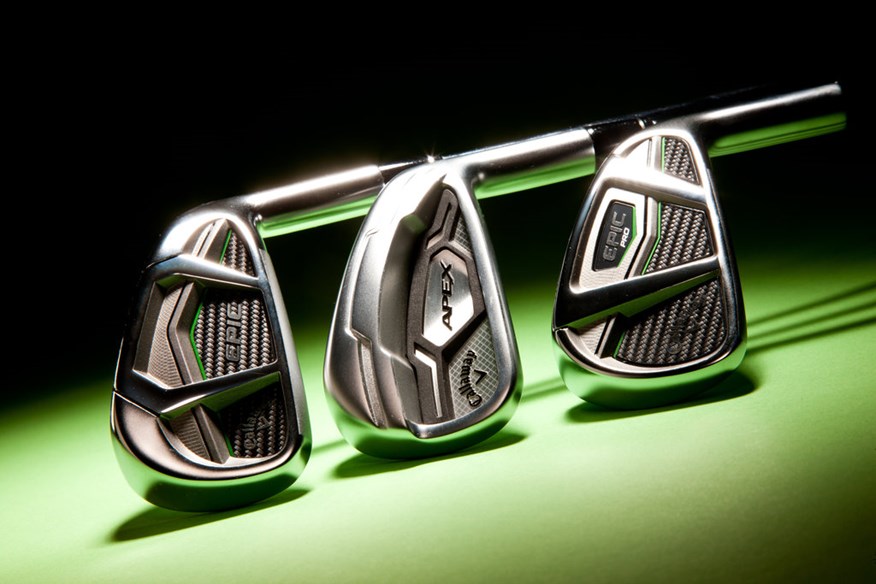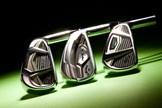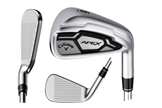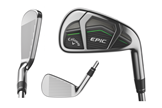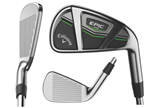Callaway Epic v Apex irons test
Published:
Callaway’s new Epic irons are among the most expensive currently on sale. So what does £1,700 a set actually buy?
Creating golf clubs without worrying about how much they cost is every designer’s idea of heaven. It’s ultimate freedom, and means you’re not constrained with hitting price points, or accounting for every component.
Callaway boss Chip Brewer challenged his head of R&D Alan Hocknell to design his ultimate set of irons with a similar open cheque book policy, and the Epics are the £1,749 (a set) fruits of his labour. It’s really difficult to put a price on premium, so to see if there is a discernible difference between Callaway’s new top of the range Epic/Epic Pros and the brilliant Apex CF 16s, we put them in the hands of our TG test pro Chris Ryan.
Epic £1,749
Stock shaft: Project X LZ 95 (s) UST Recoil ES 760/780 (g)
5-iron – Loft: 23° Length: 38.25in Offset: 0.180in
7-iron – Loft: 30° Length: 37in Offset: 0.150in
9-iron – Loft: 39° Length: 36in Offset 0.120in
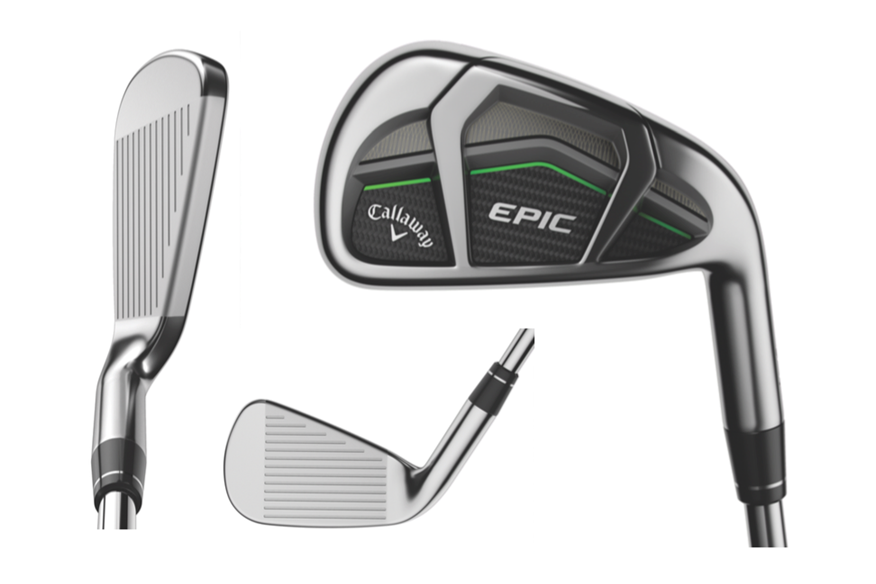
Chris Ryan’s 7-iron data
Ball speed: 134mph – Launch angle: 15° – Backspin: 4,513rpm – Carry: 202 yards
Verdict: The Epic irons are very forgiving, with tons of heavy tungsten-infused metal positioned inside the head to influence forgiveness and playability.
Yet on the outside they’ve got the looks of a lovely model. CNC-milling means the cup face of each iron (3-7) is right on the limits of face flex rules, like a driver. The Epic and Apex CF 16s have a similar amount of offset through the set and the top edges and soles are a decent amount wider than the Pro. The heads have a tendency to roll a fraction closed at address, which will help straighten a slice. Our test shows the slightly stronger lofted Epic 7-iron carried a fraction further than the Apex and Epic Pro, but we reckon the primary consideration for golfers buying these will be owning the ultimate iron, not how they perform marginally better.
Epic Pro £1,749
Stock shaft: Project X LZ 105 (s)
5-iron – Loft: 24° Length: 38in Offset: 0.135in
7-iron – Loft: 31° Length: 37in Offset: 0.105in
9-iron – Loft: 40° Length: 36in Offset: 0.095in
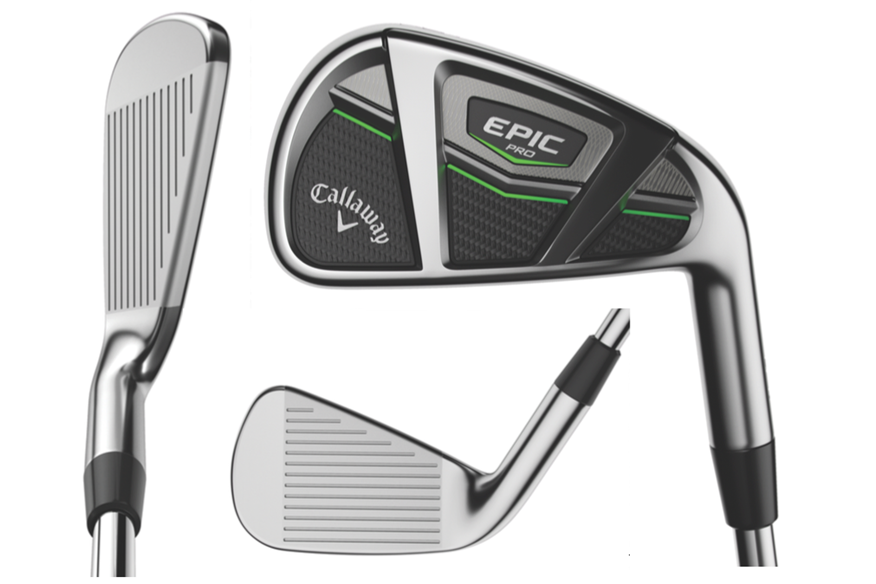
Chris Ryan’s 7-iron data
Ball speed: 133mph Launch angle: 15° Backspin: 4,779rpm Carry distance: 201 yards
Verdict: These irons (and PXG’s) highlight how there’s a bunch of well-heeled golfers who simply want the best equipment, no matter what the cost.
For those who need justification, you’re looking at £217.50 a yard. Putting the price aside this is a stunning set. The heads are sleeker and slimmer than the Apex and you get a solid sound and powerful feel which you don’t often get from a slimmed-down Pro model. You’re buying into the power of a game improver iron, but in the high-toe head shape of a better player model. That’s what expensive tungsten-infused metal and costly CNC-milling does; it controls and positions mass more efficiently and right where you need it. That makes it possible to create attractive irons with levels of forgiveness expected in wider-body models.
Apex CF 16 £879 (s), £1,099 (g)
Stock shaft: TT XP 95 (s) UST Mamiya Recoil 760/780 (g)
5-iron – Loft: 24° Length: 38in Offset: 0.180in
7-iron – Loft: 31° Length: 37in Offset: 0.150in
9-iron – Loft: 40° Length: 36in Offset: 0.130in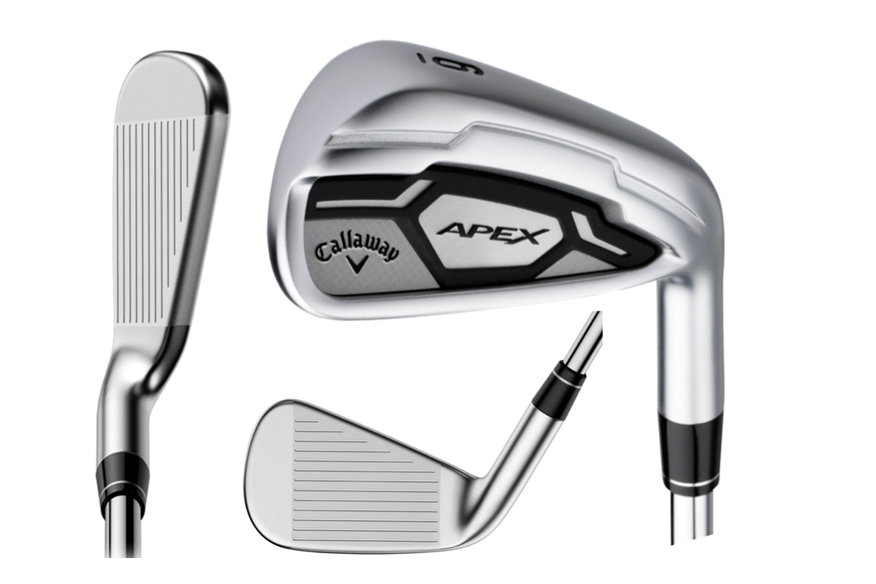
Chris Ryan’s 7-iron data
Ball speed: 131mph Launch angle: 15° Backspin: 5249rpm Carry distance: 197 yards
Verdict: A forged body (great sound, feel and feedback), some modern face tech and decent levels of forgiveness is an explosive mix in the Apex.
Our test pro’s 197-yard carry and 131mph ball speed (7-iron) is an excellent demonstration of the Apex’s capability. With lofts and shaft lengths matched to the Epic Pro you get a true comparison between the two, which quite frankly, isn’t a lot – certainly not considering the £870 price gap. A slightly higher offset throughout the set (than Epic Pro) and a wider sole means typically you’d expect the Apex to launch a fraction higher with extra forgiveness. But in reality, thanks to the Epic’s concentrated mass, there’s not a huge difference.
